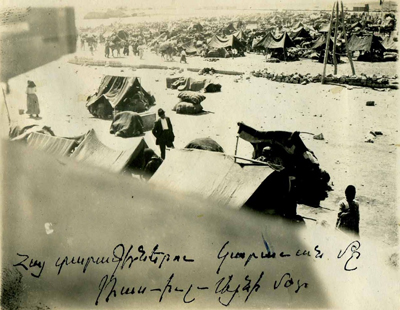Weaponizing History

This week the U.S. House of Representatives, in a rare moment of bipartisanship and in a rebuke to the Turkish government, overwhelmingly passed a resolution acknowledging the Armenian Genocide of 1915-1923. The lead sponsor of the bill, California Democrat Adam Schiff, said, “Given that the Turks are once again involved in ethnic cleansing—this time the Kurds who live along the Turkish-Syrian border—it seemed all the more appropriate to bring up a resolution about Ottoman efforts to annihilate an entire people in the Armenian genocide.”
The day before the vote, in an op-ed in the Washington Post, my friend Khatchig Mouradian, lecturer at Columbia University, called on Congress to take a principled stand on the issue, saying, “The bipartisan sport of killing Armenian genocide bills and weaponizing the suffering of its victims must end. By passing this resolution, the House can help ensure that the Armenian genocide is acknowledged and commemorated, but no longer exploited.”
The final tally on H. Res. 296 was 405 yeas, 11 nays, and 3 presents. One of the most perplexing and disappointing votes was that of Minnesota Representative Ilhan Omar, who released a statement explaining her present vote that included a sentence echoing Turkish government propaganda on the issue: “But accountability and recognition of genocide should not be used as cudgel in a political fight. It should be done based on academic consensus outside the push and pull of geopolitics.” As Turkish President Erdogan phrased it in December 2018, “On the question of genocide, please let’s leave the discussions to the Historians and let’s listen to what the Historians have to say.” Despite a century of Turkish denial, both Omar and Erdogan should know that there is extensive historical documentation and overall consensus on the issue. And, as Armenians, Kurds, and Palestinians well know, how could a political gesture happen outside the push and pull of geopolitics?
Predictably enough, the day after the vote, as part of a televised speech to members of his party, Erdogan denounced the U.S. House of Representatives, saying, “The countries who have stains of genocide, slavery, colonialism in their history have no right to give lessons to Turkey.” Part of the problem with these demagogues, such as Erdogan and Trump, is that there is always some twisted truth in their outrageous statements. Yes, the U.S. has its own shameful history of genocide, slavery, and colonialism, and yes, the timing of this vote had to do with Congress’s fury over Trump’s betrayal of the Kurds and Turkey’s incursion into Syria, and yet, this Congressional resolution was long overdue.
Generations of Armenian-Americans have been working for decades to prod the U.S. government to take a stand on this issue. In 1984, Congress passed a resolution designating April 24, 1985 as “National Day of Remembrance of Man’s Inhumanity to Man,” stipulating it should be “a day of remembrance for all the victims of genocide, especially the one and one-half million people of Armenian ancestry who were the victims of the genocide perpetrated in Turkey between 1915 and 1923, and in whose memory this date is commemorated by all Armenians and their friends throughout the world.” A companion bill was introduced but never passed in the Senate. It is unlikely that a companion version of this week’s House Resolution 296 will make it through the Senate. But this vote in the House, which was due in large part to grassroots organizing, has again put Armenian history on the front pages of newspapers around the world.
One hundred years of denial makes this tragic history an open wound for Armenians, and for Armenians the images of Kurds being driven from their lands are dismally familiar and even traumatizing. This gesture by the U.S. Congress doesn’t undo any of that, but it does mean that for a brief moment we aren’t being “gaslighted.” Our history has been described, discussed, and acknowledged. This isn’t justice, but it is meaningful and important.
In an interview with France 24, Khatchig offered this sage analysis:
After decades of denial, it has become very difficult to come to terms with the past. Turkey is also worried about what would follow an acknowledgment: Reparations for the utter dispossession and destruction of an entire nation…But it’s also important to note that in recent years, in Turkish civil society, there have been many intellectuals, scholars, writers who HAVE spoken out on the importance of confronting the past and delivering some measure of justice to the victims of genocide.
Garo Paylan, an ethnic Armenian Minister of Parliament in Turkey from the pro-minority leftist HDP party, wrote on Twitter: “US Congress has recognized the Armenian Genocide. Because my own country has been denying this for 105 years, our tragedy is discussed in other world parliaments. The real healing for Armenians will come when we can talk about the Armenian Genocide in Turkey’s own parliament.”
Nancy Kricorian
New York City
October 31, 2019
